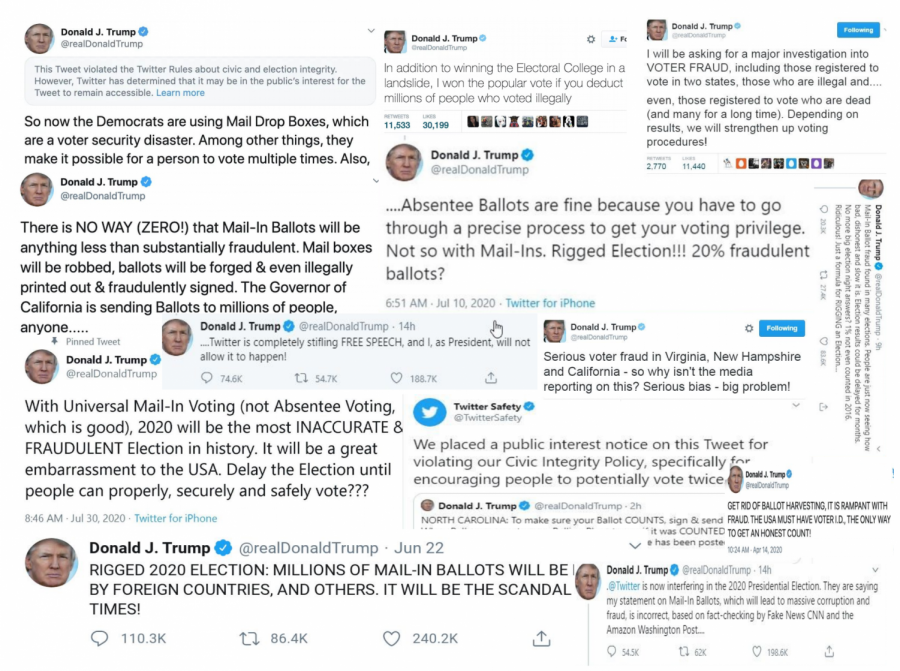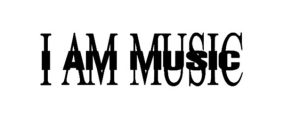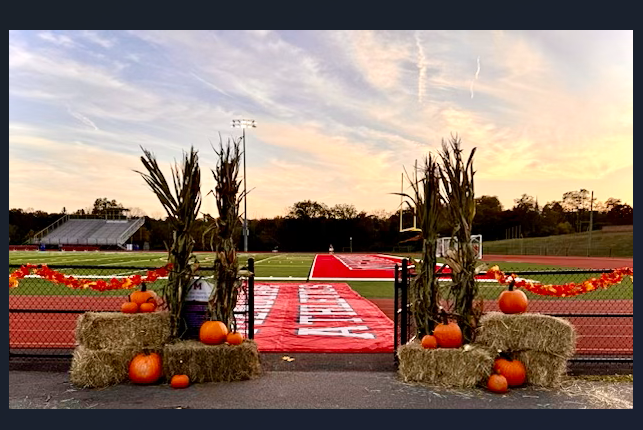The Un-democratic Progression of an Inherently-Democratic Process
October 16, 2020
This is an opinion article. Ana Monaco is a student at Mendham who writes for the Global and Domestic News Section. All opinions expressed in the following editorial are her own and do not necessarily reflect the views of the Patriot.
The foundation of this country lies in our democratic rights: speech, petition, press, religion, assembly, vote; yet as the November 3 election looms over the heads of American citizens observing an unprecedented global pandemic and a divided government, the sitting President is determined in his refusal to protect voting rights. Each state is battling the logistical challenges of social distancing, record absentee-ballot requests, and uncertainties about sufficient poll workers as well as the task of creating an election blueprint through legislation and guidelines, and the lack of support and even outright suspicions about the event’s integrity from our current administration serves only to obstruct the road to an effective, civilized election.
Voter turnout is, indisputably, the most important aspect of an election, and Republicans are utilizing the strategy of voter suppression in order to compress the pool of voters, under the guise of Trump’s assertions that “mail ballots are very dangerous for this country because of cheaters”. A Democratic House bill passed in August sought to provide emergency funding for the United States Postal Service, impede functional changes presented by Trump’s Postmaster General that have led to delays and widespread uproar, block the shutdown of mail-sorting machines, and require the Postal Service to prioritize election mail. Republicans fervently opposed the bill and the mail-in voting system, supported by Donald Trump and his tweets attacking the latter. Methods of voter suppression include stringent identification requirements, removing citizens from registration rolls (also known as purging), reducing the number of polling locations and drop-boxes, and complicating absentee ballots; accusations of suppression regarding these tactics are typically met with claims of the intention of reducing voter fraud, a problem that is largely nonexistent with a national incident rate of 0.0025%. President Trump has repeatedly expressed his doubts concerning the election, stating outright during the debate against Joe Biden that “This is going to be a fraud like you’ve never seen”. Fraud, however, is not the most pressing issue concerning the majority of American citizens- it’s getting to the polls. A handful of states, including battleground North Carolina and Wisconsin, require mail-in ballots to be signed by a witness or notary (meaning that citizens voting through the postal system will have to do exactly what they are attempting to avoid: risk infection of the coronavirus simply to exercise their democratic right). Texas, in a September court ruling, determined that citizens under the age of 65 must have a disability, be in jail, or be traveling during the election to request a mail-in ballot, despite the fact that over 42,000 Americans under 65 have died from COVID-19. Governor of Texas Greg Abbot issued a directive limiting ballot boxes to one per county, meaning that the 4.7 million residents of Harris County have one singular box through which they can vote. Republicans in Tennessee attempted to remove ballot drop-boxes, calling instead for all ballots to be sent through the mail. North Carolina was accused of targeting African Americans through the Voter ID law and the shortening of the early voting period in past years, forwardly stating that Sunday voting brought a disproportionate amount of black, typically Democratic, votes.
When asked if he would accept a loss in the upcoming election, President Donald Trump did not say yes; it is entirely possible that upon a loss, he persuades the legislatures to overrule mail-in ballots, as he has said that if we “get rid of the ballots”, then there “won’t be a transfer [of power], frankly. There will be a continuation”. One stroke of a judge’s pen can overrule the expected millions of votes sent by mail and the 17 million already done so, can silence the voices of almost half of the American population, can erase and undo the hours spent reading instructions and filling out paperwork and standing in line simply to cast a vote. As a single person, there is no way to fight back; there is no way to prevent voter suppression or ensure a civil transfer of power, or even protect the influence American citizens hold over their government. But as a community, as crowds swarming to the polls on November 3 or envelopes arriving in masses at the postal office, our vote should and will count.










